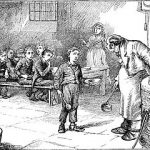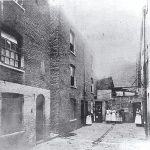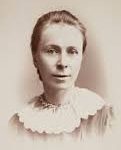
Charles Dickens: Social Reformer?
Charles Dickens was born in 1812 to an upper middle class English family and spent his childhood in the coastal suburbs of Portsmouth. When his father was incarcerated in debtor’s prison at Marshalsea (1878, http://www.british-history.ac.uk/old-new-london/vol6/pp57-75), the family moved from the coast…

Overview: Slum Literature
As discussed previously, the Ripper murders themselves did not lead to a change in public opinion. Slums had been a part of urban life since the beginning of industrialization, and the government was well aware of their existence. However, it…

Case Study: Old Nichol Clearance
On April 4th, 1888, a prostitute named Emma Elizabeth Smith was admitted to the London Hospital by the deputy keeper of her common lodging house. The keeper told the house surgeon that Emma was allegedly assaulted by three men, but…

Response: London County Council
The Metropolitan Body of Works (MBW) was the primary institution of local governance for the city of London until 1889. After a series of scandals, the MBW lost its jurisdiction and was replaced by the London County Council (LCC). This…

Response: Exogenous Adaptation of Booth’s Work
My past three blog posts have been short biographies of the people involved in the East End census project following the Ripper murders. This week, I hope to take a more in-depth approach to their research and published results. There…

Response: Beatrice Webb
Beatrice Webb was the third investigator in Charles Booth’s East End census project. She was his cousin by marriage, and is not typically associated with Life and Labour of the People in London because her interviews were never formally published…

Response: Clara Collet
Ever since their modern commercialization, the Ripper murders have been accused of promoting misogyny. Feminists have argued that the creation of the “Ripper industry” has “glamorized violence against women, fetishized the murder of prostitutes, and commercially exploited real-life murder victims”…

Recent Comments